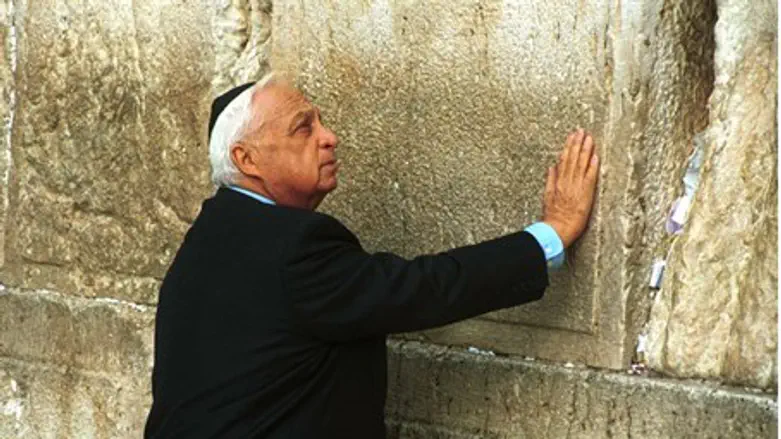
Former Israeli Prime Minister Ariel Sharon has passed away aged 85.
He passed away with his family at his side at the Sheba Medical Center where he had been treated since not long after slipping into a coma in 2006.
"The Sheba Medical Centre in Tel HaShomer announces with sorrow the passing of former prime minister Ariel Sharon that was determined approximately an hour ago," senior doctor Professor Shlomo Noy told a news conference at 1300 GMT.
Sharon has been in a coma since January 4, 2006 after suffering a massive stroke. His condition took a sudden turn for the worse on New Year's Day when he suffered serious kidney problems after surgery.
"He's gone; he went when he decided to go," his son Gilad told reporters at the hospital, in remarks on Channel 2 television.
As news of his death emerged, tributes poured in from senior Israeli officials, but the Palestinians were quick to denounce him as a "criminal" who had escaped international justice.
Prime Minister Binyamin Netanyahu said Israel would "forever" cherish Sharon's memory.
"The State of Israel bows its head over the passing of former prime minister Ariel Sharon," he said in a statement, expressing "deep sorrow" over the news.
"Sharon played a central role in the struggle for the security of the State of Israel over all its years," read Netanyahu's statement. "He was, first and foremost, a courageous fighter and an outstanding general, and was among the IDF's greatest commanders."
Netanyahu recounted Sharon's military career, saying he "served the people of Israel on the battlefield. He did so as a soldier in the War of Independence, a commander in the [1956] Sinai campaign and the Six Day War, and up to his decisive role in the battle over the Suez Canal that led to the turning point in the Yom Kippur War. He established Unit 101 and took the initiative in the war against terrorism, which became a central pillar of the State of Israel."
"Upon leaving the military, he continued to work on behalf of the people of Israel both in his many government roles and as the 11th prime minister of the State of Israel," concluded Netanyahu. "His memory will be enshrined forever in the heart of the nation."
President Shimon Peres also expressed his grief.
"My dear friend, Arik (Ariel) Sharon, lost his final battle today," he said in a statement. "Arik was a brave soldier and a daring leader who loved his nation and his nation loved him. He was one of Israel's great protectors and most important architects, who knew no fear and certainly never feared vision," he said.
"He will be greatly missed."
Justice Minister Tzipi Livni also expressed "great sadness" over his death.
"Arik was a man I loved. They say great soldiers don't die, they fade away. Arik faded eight years ago, and now finally left us," she said.
He was a "brave fighter, a commander, a leader (and) a farmer whose legs were firmly planted in Israel's soil."
A veteran soldier, Sharon fought in all of Israel's major wars before embarking on a turbulent political career in 1973 that ended dramatically when he suffered the stroke from which he never recovered.
"Ariel Sharon was first and foremost a rare military leader who shaped the Israeli army," said Defence Minister Moshe Yaalon.
"Despite the differences of opinion along the way, I always valued his experience and leadership. The defence establishment... bows its head today with his departure."
Meanwhile, Army Radio reported that the former PM's funeral will take place at 12:00GMT on Monday at his Negev ranch.
In the months after the Gaza withdrawal, Sharon abandoned his lifelong political home in Likud to form a new centrist party, Kadima, with the aim of effecting further, but limited, pullouts from the West Bank.
But just six weeks later, when he was at the height of his political career, he collapsed into the coma from which he would never recover.